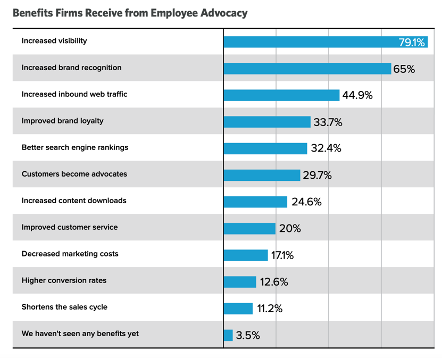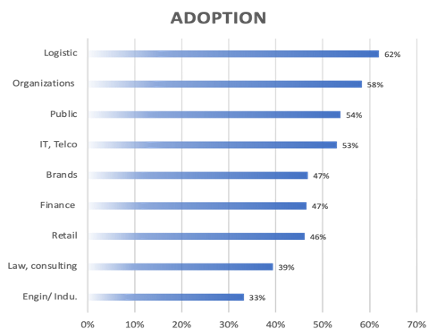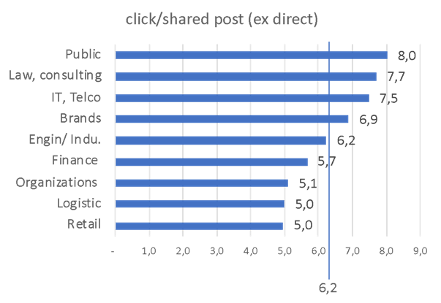Employer Branding
The overall aim of Employer Branding is not only to attract and hire new talent, but to also retain your existing employees.
Employer Branding – The Definition
There are many different definitions, but basically, it all boils down to your “Corporate reputation and corporate branding” and ultimately, the way your organization stands out from the crowd, as an employer.
There are many good reasons to improve your company’s Employer Branding
In companies with good Employer Branding, employees appreciate working for a company with a good reputation, which helps mitigate:
-
92% of candidates will leave their current job for a role in a company with an excellent reputation
-
Companies with poor Employer Branding pay 10% higher salaries
-
79% of job seekers will use social media in their search
Source; www.smartdreamers.com (LINK)
Employer Branding is also important in niche sectors, where there is greater competition for acquiring new talent.
It’s proven that those looking for a role will go to companies with the best Employer Branding and supported by the fact that 79 % 0f job seekers will use social media in their search (www.smartdreamers.com)
So by implementing a strong Employer Branding approach, as a business, you will keep your employees happy, as well as reduce the likelihood of them leaving and from an acquisition point of view:
A study by Linkedin shows that companies with a strong Employer Brand see a decrease of 43% in hiring costs (LINK)
According to a study from AJBER (June 2020), Social media is the single most important tool to improve Employer Branding, through Corporate Reputation and Corporate Branding. (LINK)
The overall categories of social posts that mainly impact employer branding are:
- Brand promise
- Corporate communication
- Recruitment ads/tools
- Personal branding
Employee Advocacy – The Definition
Employee Advocacy is the action of employees advocating for your brand.
(Read full explainer on employee advocacy here)
It comes in many forms and shapes and we focus on social media posting. Here are some examples:
- Sharing of a recruitment posts for a job opening in her / his department
- Posting about a company’s latest development
- Sharing news around the benefits of working at a specific company
- Posting company developed content to engage and discuss certain (niche) topic
The content shared in these posts may be the result of an autonomous action from a single employee or from a structured approach.
Both ways will harvest the power of the workforce, increase social reach, ignite and influence discussions with the ultimate goal of attracting future business and employees.
So, why should Employee Advocacy be a part of your Employer Branding strategy?
The short answer is, who better than your employees to authentically, represent the workplace to future colleagues?
Getting branding (impressions) on social media via company and paid posts alone, will NOT do the trick. You definitely need employees to help you share posts. Plenty of studies exist supporting the process of employees sharing content and the fact that it performs significantly better than content shared directly from your business company.
- 92% of SoMe audience trust employee shared posts more than company shared posts (MSL-group) (LINK)
- Employee posts are 7x more likely to convert than company posts (Nielsen insights) (LINK)
To engage your employees, you need to exercise the most important mantra inyou’re your communications
- There must be a purpose
- There must be a relation
- It must be relevant to the receiver
To exercise this in an effective and meaningful manner you should introduce a formal tool, which will enable you to easily create invitations for relevant employees and even more importantly, enable employees to action the content you ask them to share (Engage), without logins and hassle free. Finally, you will need a tool that will allow you to get insights as to what does and does not work and for who.
Including Employee Advocacy in your Employer Branding efforts, comes with a major boost !
Employees sharing company posts are better ambassadors for your company, as they are kept informed of what is going on, which definitely makes them feel engaged and better associated with the company.

Source: Hinge research institute (LINK)
Will my employees be interested in participating?
Employees sharing company content will strengthen the employer’s personal brand, as well as the employees’ personal brand.
According to Hinge research institute, 68,9% of employees that participated in company Employee Advocacy stated that the activity had a positive impact on their career, while 96% of companies stated Employee Advocacy has a positive impact. It a truly win-win
The Sociuu benchmark report 2020, shows that on average, 49% of employees participate actively in Employee Advocacy

The difference between industry sectors is more related to the company’s operational focus on the formal Employee Advocacy program, than the industry sector itself. This is supported by the fact that within each industry sector, there are companies at both ends of the adoption scale!
The results from Employee Advocacy are convincing
Perhaps the most important result is that you will on average get 49% of your employees to participate and engage in your Employer Branding activities. Engaged employees are better informed, better ambassadors and in general develop a tighter connection to the company.
You will also experience a significantly higher CTR (Click Through Rate) on content shared by employees, than content shared directly by your company or as paid content. You will see an average CTR from Employee Advocacy as high as 0,9 to 2,0%, while direct company or paid posts only have an average CTR of 0,3 to 0,4%. Also, the click through per share is as high as 6,2 (on average)

Enabling your employees to easily share your Employer Branding content, using an Employee Advocacy tool at it’s core, will not only benefit your Company branding, but also your talent acquisition. From this, you will be able to attract the right people, recruit them more easily and (according to Raddon), as 83% of employees working for a company with an Employee Advocacy program, say they are “Proud to tell others that they work here”, you will retain your employees.